The best western novels from Next Chapter [March 2023]
Western books are a popular genre that typically involves stories set in the American Old West during the 19th century. These books usually center around characters such as cowboys, sheriffs, and outlaws, who navigate through the harsh and often violent landscape of the American frontier. The Wild West was a period of rapid expansion and change, as settlers moved westward in search of new opportunities, and these books often capture the sense of adventure and danger that characterized the era.
Many of the most famous Western books were written in the early to mid-20th century, with authors such as Zane Grey and Louis L'Amour becoming household names for their vivid portrayals of life in the Old West. Some of the most popular themes in Western books include tales of gunfights, range wars, and frontier justice, as well as stories of romance and betrayal set against the backdrop of the rugged western landscape. While the Western genre has declined somewhat in popularity in recent years, it still has a loyal following of readers who appreciate the genre's unique blend of history, action, and adventure.
Overall, Western books offer a compelling glimpse into a bygone era in American history, when the frontier was still a place of danger and excitement. These books continue to captivate readers with their vivid characters, epic adventures, and timeless themes, making them an enduring part of American literature.
Below, you’ll find some of the best western novels from Next Chapter as of March 2023. All of the books below are available in eBook and paperback - and some in audio as well. If you read eBooks, some of the books below are completely free to download from Amazon, Apple Books, Rakuten Kobo, Barnes & Noble and Google Books!
If you enjoy one of the stories below, please don’t forget to leave the author a review! Don’t agree with our choices? Please leave a comment and let us know your favorite :)
Books featured on this page
Unflinching (Unflinching Book 1) by Stuart G. Yates
The Last Hundred (The Last Hundred Book 2) by Jim Ellis
Bloody Reasons (To Kill A Man Book 1) by Stuart G. Yates
White Crow (The House Of Crow Book 1) by John W. Wood
The Marauders Of Pitchfork Pass (Silver Vein Chronicles Book 1) by Clay Houston Shivers
Unflinching (Unflinching Book 1) by Stuart G. Yates
Book excerpt
He didn’t stop riding until he reached a mountain range, a narrow trail taking him high up into its interior, discovering a cave where he camped, fed his horse and stretched himself out to sleep.
The sun dropped low behind the horizon. Across the vast sky a single eagle swooped, its plaintive call a mirror to the stark loneliness of the mountains. Anything that lived here scratched out a sorry existence. The arid land was hard, unrelenting, the lack of rain a killer. He'd seen it on the ride, prairie dogs and coyotes, even birds sometimes, lying in tangled heaps, bodies twisted and blackened, baked hard by the heat.
He'd filled two canteens with water back at the town, and barely half of one still held liquid inside. If he didn't find another town, farm or homestead soon to replenish his dwindling supplies, he'd be just another dried up corpse out on the prairie. He feared most for his horse. If she succumbed, his chances of survival would be virtually nil.
Damn this land and damn this assignment. It would have been better to travel across to San Francisco, make his base there, get properly supplied, drum up some help. Out here, alone, he was vulnerable to any number of would-be attackers, human and animal. He checked his pockets. He had five cartridges left for his new carbine. Five. If a posse of twelve came after him, how many could he feasibly pick off before they surrounded and dangled his neck from the nearest tree?
Given such a scenario, he mused, casting an eye across the plain, there wasn't a single tree in sight. A bullet in the brain might serve equally as well, before they propped his body up against a cliff face with a sign around his neck, 'Horse thief and killer'. Great end to an otherwise mediocre career. He sighed, stretched his arms high above his head and decided from now on he would travel through the night, when it was cooler. He looked at his horse. She too, would fare better in the coolness of the night. And if he came across a homestead, then he'd camp and wait until morning, for he did not wish to spook any people he might meet. If he came across anything. In this vast, blighted land, he may just as easily find nothing at all. He sighed, pulled his blanket tight around his throat and tried to sleep.
The Last Hundred (The Last Hundred Book 2) by Jim Ellis
Book excerpt
As Jock and the boy disappeared into the San Andreas Mountains, a force meant to destroy them was gathering south of the border at the small town of Samalayuca. Neither the Mexican nor the American Government wanted to acknowledge that there was trouble with Apaches from the Sierra Madre. So word went out to the local authorities: deal with the hostiles, but keep it quiet. Hire a few good men, organize a force, then locate and destroy the renegades. The Americans would pay the bills, but the attack had to happen south of the Rio Grande. That way, any fighting could be denied, rejected as a concern for the Mexican Government. No one could suggest that American politicians couldn't control Apaches.
What the authorities most feared was a repeat of the rows which broke out in the press and among Tucsonians, and along the border when the Bronco Apaches continued raiding for years after Geronimo surrendered in 1886. The authorities wanted no rumors of an Indian War, or the appearance of latter day Masais or Apache Kids terrifying the citizens, with the newspapers demanding the Army do something. This way, if the Apaches were destroyed, well and good. If things went belly up and the Apaches mauled the force, the authorities would deny having anything to do with a border rabble stirring up trouble, hunting Apaches for heads and scalps to sell to the state of Chihuahua.
The inhabitants of Samalayuca watched disinterestedly as hard, shabby men – most on horseback, some driving ramshackle cars, and a few impoverished enough to be on foot – passed through the town to the camp near the Ochoa Ranch, a splendid, remote place in the desert looking onto distant hills. The State of Chihuahua had secured the ranch as the base of operations against the hostiles.
This was no regular military force but broke ex-soldiers, long out of uniform. A handful of Texas National Guardsmen on leave, comrades of the Guardsmen slain by Jock and the boy, formed a disciplined backbone, but they had come for money and revenge. A smattering of Rurales and an officer informally represented Mexico. The rest were worn-out bounty hunters; American and Mexican border riff raff, no better than brigands.
Joe MacIntosh, on the other hand, was a genuine relic from the frontier. When he was offered the job of scouting for Major Richard Hargan, his first reaction was to refuse; he'd done enough campaigning against the Apache as a cavalryman in the frontier days to respect them, especially when they'd been poorly treated after Geronimo's surrender in 1886. But the money was a tempting windfall for his declining years. With the frontier ending and the South West growing quiet, MacIntosh worked as a Regulator for some cattlemen in Wyoming, then he had run guns for Villa and Zapata for a while. Now he was running a fishing boat out of the little port of Anton Lizardo, south of Veracruz. He was happy there with his Mexican widow and her children and made enough to live on. But twelve thousand dollars, paid in advance, prised him loose from the domesticity of his twilight years. So, he buried his sympathy for the Chiricahua who'd been made prisoners of war in Florida, Alabama and Oklahoma, his anger at the broken promises to let them return home after two years.
No white man could find sign of Jock – it had to be Jock –and his companion. It would take an Apache to unearth Jock's meager spoor and decipher it. So Joe MacIntosh brought along two Mescalero Apaches from the reservation near the Sacramento Mountains in New Mexico; relatives by marriage, trackers, old hands, retired from the reservation police. He was amused by the curiosity and fear of the locals at the sight of two unarmed Apaches alighting from the train in Nogales, quiet and dignified in jeans and dark jackets, expressionless faces in shadow under stiff hat brims, walking awkwardly in new cowboy boots.
Bloody Reasons (To Kill A Man Book 1) by Stuart G. Yates
Book excerpt
With the heart-breaking sobs of the young girl ringing in his ears, Father Merry came out of the tiny bedroom and went to the hand pump. He worked the lever, splashing water over his hands, then his face. Temporally blinded, he groped around for a towel. A pair of soft hands pressed a coarse cloth into his grip and he grunted his thanks. Patting his face dry, he turned to Nati Parker standing before him.
A slender woman of just over thirty, Nati possessed the smouldering good looks which betrayed her Mexican heritage – dark eyes and raven-black hair pulled back from her smooth, burnished face. She ran her tongue over her teeth and said, “How is she?”
“A little better. It’s going to take time, Nati.”
“We both have plenty of that.”
“Maybe not.”
She titled her head. “What do you mean?”
“I beat the bastard who did this half to death. I may even have actually killed him.”
His words brought no change to her blank expression. “A pity you didn’t. That son of a whore deserves to be in the ground for what he did.”
“Yes, but even so… His friends will come-a-calling, and when they find I’m not at home, they’ll come here.”
“Then I shall kill them.”
“No. You do that, they’ll hang you.”
“Pah, what a horse-shit world it is that allows my sister to be raped by that bastard, and does not give me the chance to avenge what he did. What kind of law is that, eh, padre?”
“The thing is, they are the law round these parts, Nati.”
“Then where is the justice?”
“There isn’t any.”
“Then I will find my own.” She swung around and strode over to the door, above which hung a Spencer carbine. She took it down and worked through the loading mechanism with obvious skill. Grunting, she looked again at the priest. “When they come, I will shoot them. My father taught me how to use this when I was twelve. I do not think he ever believed that one day I would have to use it.”
White Crow (The House Of Crow Book 1) by John W. Wood
Book excerpt
Crow and LeRue sat on the huge bed in the guest room. Crow bounced a bit and went to his pack that lay on the floor. He pulled his bedroll out and tossed it on the floor.
“Too soft?” asked LeRue.
“Too soft,” replied Crow.
As Crow spread out the bedroll, LeRue went to his possibles bag and rummaged around inside. He pulled out a straight razor and a pair of scissors. Crow watched with curiosity as LeRue went to a low chest of drawers. A water pitcher and basin sat on top of the chest with a mirror hanging over it. Pulling out a couple of drawers, LeRue found a towel and spread it out flat. He began cutting his beard with the scissors, the hair falling onto the cloth.
“What are you doing?” asked Crow.
“Why I am going to skin this wild-man. I thought I’d say ‘howdy’ to Francisca … when the time is right of course.”
Crow was surprised by the feeling of jealousy that washed over him at what LeRue had just said. Staring at his friend’s reflection in the mirror, he was sure he could see a smirk on LeRue's face, even through his beard. Acting nonchalantly, Crow returned to his pack and pulled out a pair of scissors and a straight razor. Moving up next to LeRue, Crow pointed his chin up and combed his beard from his neck to his chin with the backs of his fingers. “I figure I can take you both, one at a time or together,” he said in a murmur that seemed more threatening than if he had shouted.
LeRue stopped cutting his beard, “Together? Who together?”
“Why, Hector and you. He thinks he’s got the nod from Hernando for Francisca’s affections. I think Hector… and you are going to be disappointed,” Crow said as he began trimming his beard.
LeRue returned to cutting his beard and thought, ‘I knew I saw amour in your eyes tonight my friend. There will be no competition from me. But Hector… I think you may have to kill Hector someday.’
LeRue started to hum. Picking up his razor, he began to shape his mustache.
The Marauders Of Pitchfork Pass (Silver Vein Chronicles Book 1) by Clay Houston Shivers
Book excerpt
The story of what happened to the sheriff became legend. Pap Kickins did a full inter-view with the sheriff and ran it in the Daily Silver Vein, which in truth only came out when something actually newsworthy happened in the town, which was close on to never and certainly not every day. I’ll just summarize it here. After he climbed down out of the tree, the sheriff wandered for two days, barefoot, smack in the middle of winter and out of his head from thirst. He wandered and wandered, lost and confused, desperate for water, until finally he followed a bunch of birds and found some water and then he got lucky and found a cave out of the sun; he curled up in the cave and he killed and ate any varmints that wandered inside.
He did that for a couple of weeks, naked and surviving off wandering critters, before the bear that had been hibernating somewhere deep within the cave woke out of its slumber and chased the sheriff away. The sheriff ran from the cave and wan-dered through the desert, feverish and half crazy from the sun. Then he came across an old Indian sitting in front of a fire burning sage and singing. At first he thought the Indian was a figment of his imagination. But the old Indian was very real; he was also a healer, and set about mending the sheriff. He cleaned the sheriff’s wounds and gave him water and fed him soups and small pieces of game to help him get his strength back. He gave him animal skins to wear and made moccasins to protect his wounded and bloody feet. After several months of fighting his failing body, hovering between life and death, the sheriff eventually recovered and built his strength back up. His scars healed and the red burn around his neck, with the help of the Indian and his herbal potions, turned from an angry red to a somewhat angry pink to blue to yellow to final-ly skin colored.
In time, the old Indian had to go back to his people, and so the sheriff wandered the desert by himself, though he was no longer lost, as the Indian had shown him wa-tering holes and places to shelter at night.
Absaroka War Chief by Bryan Ney
Book excerpt
Jennings Beckwourth winced as he shifted in his chair. “So now you come back home, hounds at your heels,” he said.
“I won’t be here long, Father.”
The elder Beckwourth twisted in his chair again, trying to find a comfortable position. More than forty years ago, when he was barely more than his son’s age, Jennings had taken bullets in his knee and his backside from the redcoats. Every movement now reminded him that he still retained those lead souvenirs.
“I paid for four years of schooling, and then got you that apprenticeship,” said Jennings. “Now what? It’s all going to be wasted?”
“Not wasted. But as you say, Father, the hounds are at my heels.”
“So where will you go then? Eh? Downriver and hide in the Louisiana swamps?”
“No, sir. General Ashley…”
“Ashley? Ashley? Is he trying again after last year’s disaster? And what makes you think he would take you on anyway?”
James stiffened, then took a breath. He needed his father’s help. “As you say, last year was a disaster, so maybe he can’t afford to be too choosy.”
There you go - the best western novels from Next Chapter in 03/2023. We hope you enjoy the stories - and if you do, please leave a comment below, or a review in Goodreads or your favorite store. It would mean a lot to us!










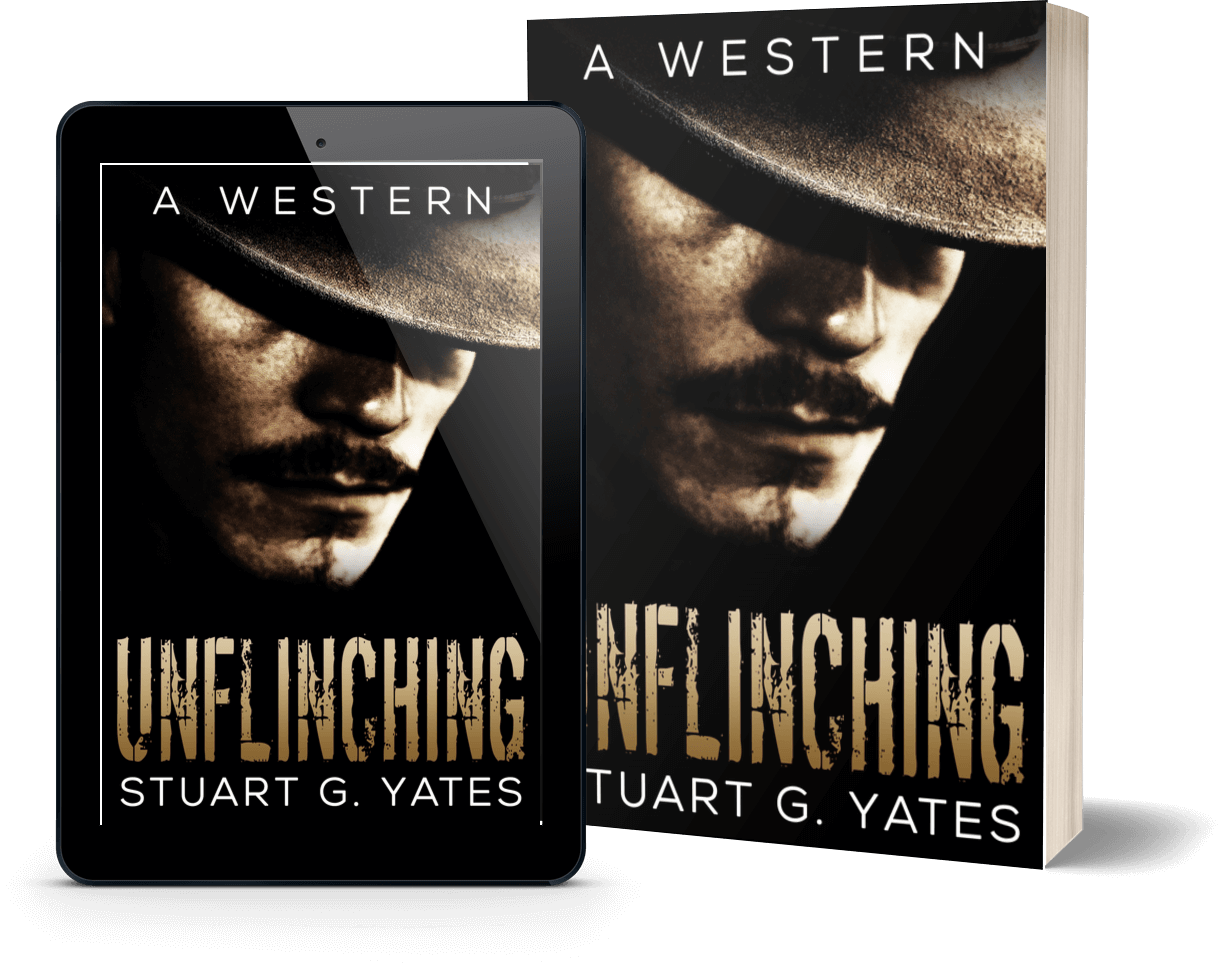

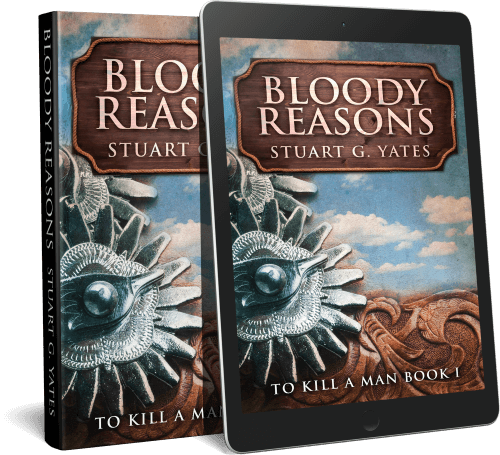
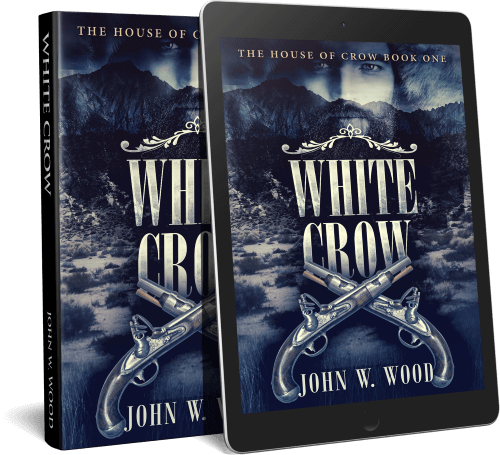
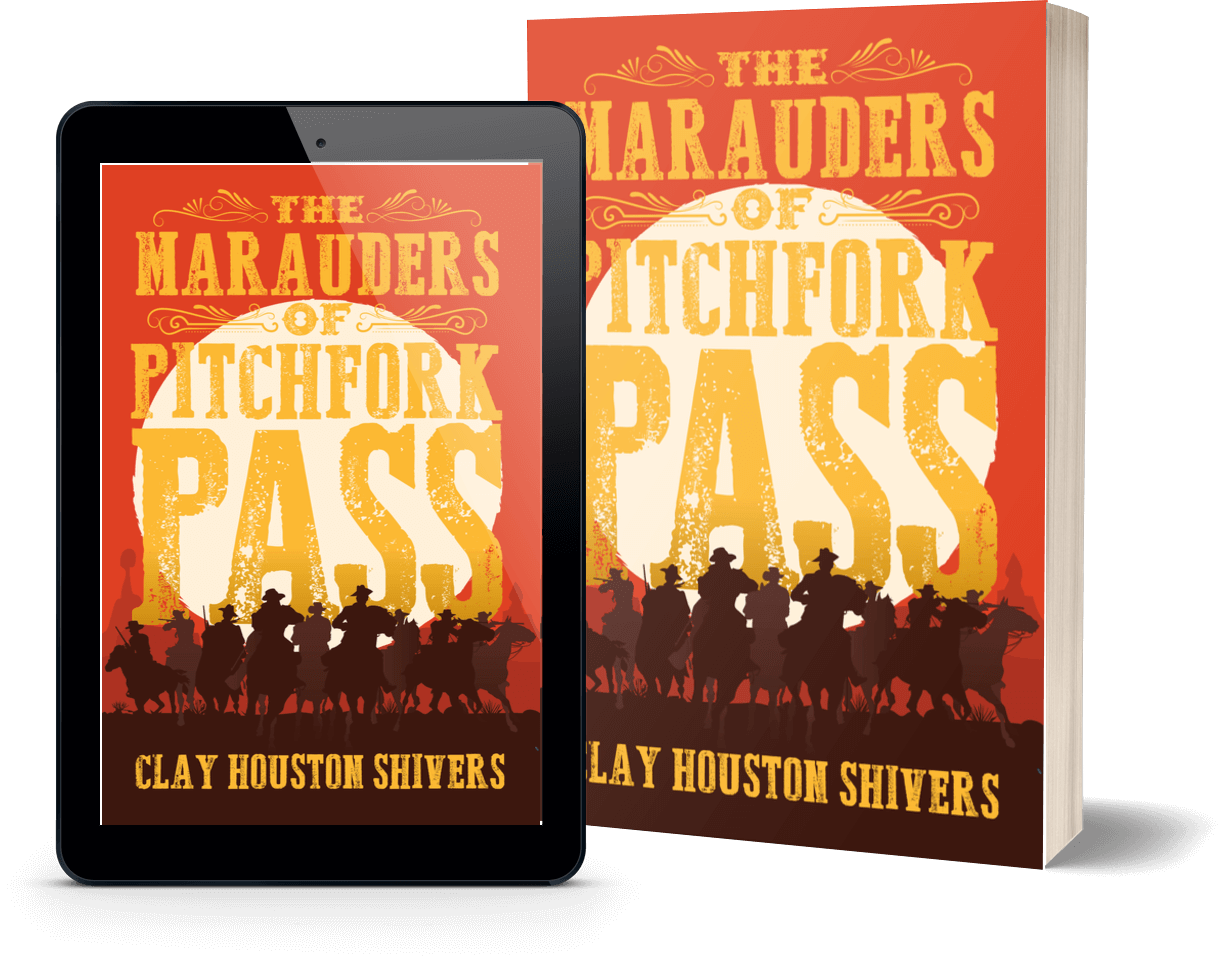
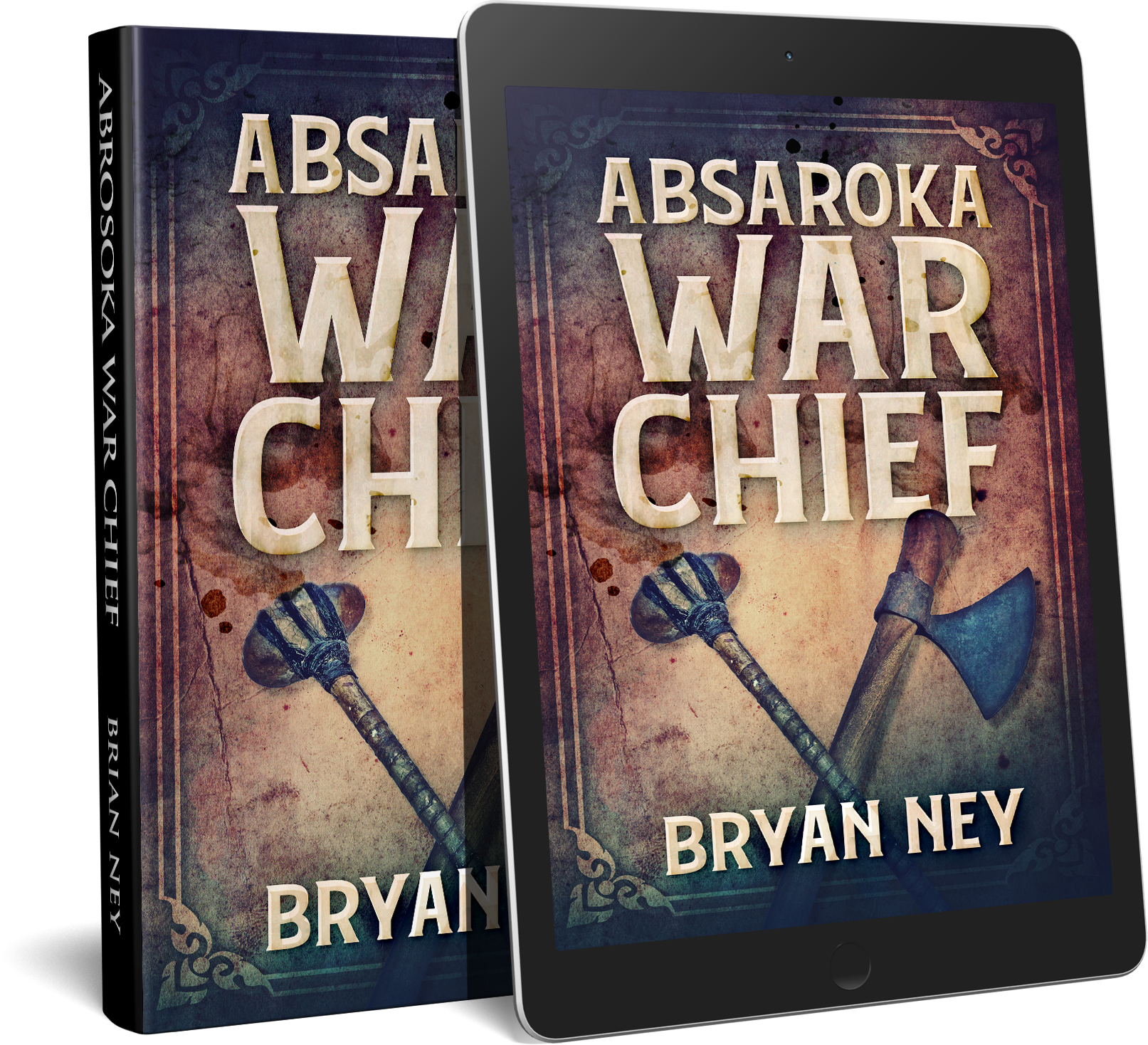
Praesent id libero id metus varius consectetur ac eget diam. Nulla felis nunc, consequat laoreet lacus id.